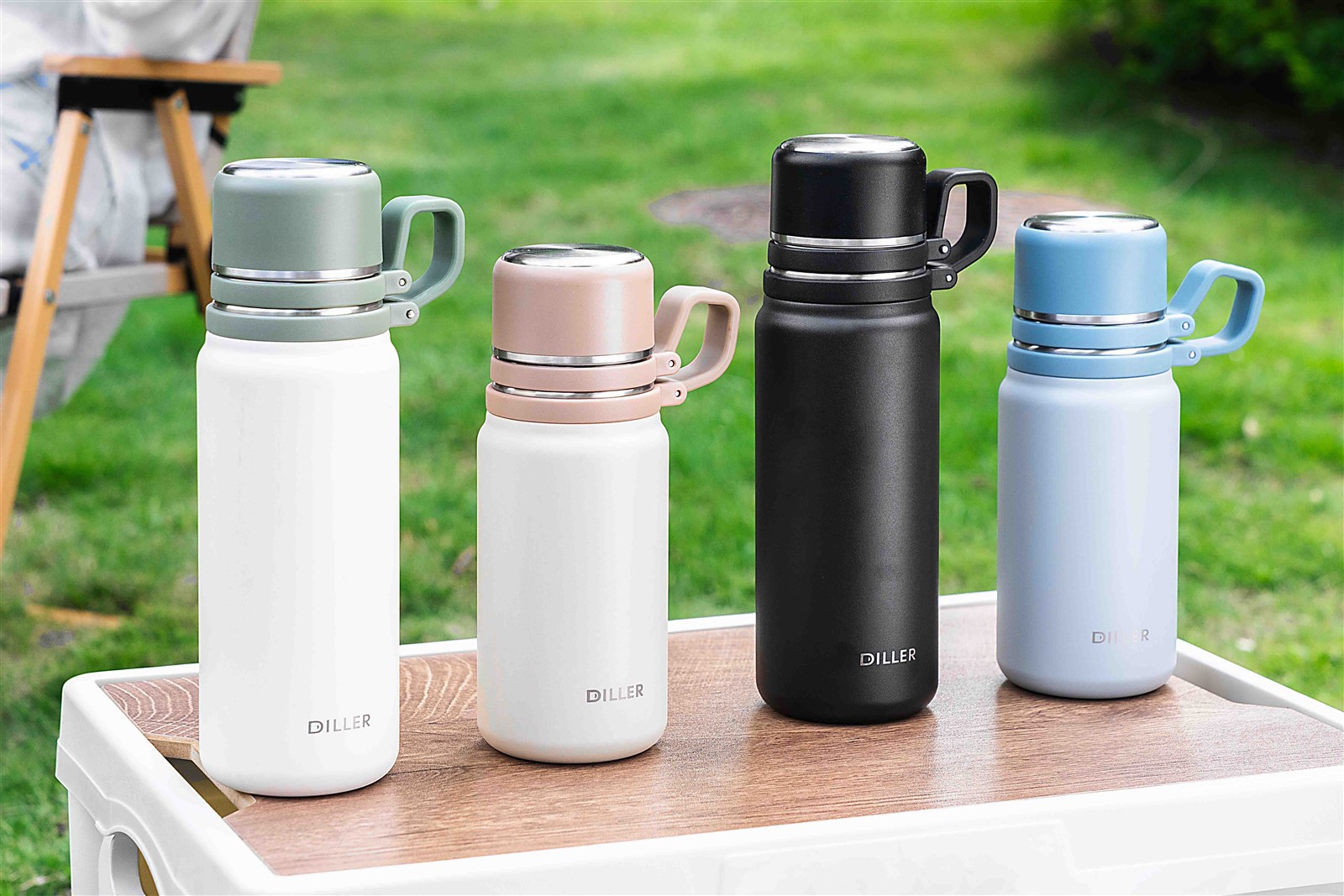Water bottles are an essential item in our daily lives, used for storing and consuming various beverages. In this article, we will explore different types of water bottles, including plastic, stainless steel, glass, titanium, and insulated bottles, discussing their features, advantages, and disadvantages.
Plastic Water Bottles
Plastic water bottles are lightweight and durable, providing a cost-effective option for many people. They are available in a variety of sizes and colors, catering to different needs. The bottle body is typically transparent or semi-transparent, allowing users to easily observe the remaining volume and clarity of the liquid inside.
Plastic water bottles have the advantage of being lightweight, unbreakable, highly resistant to impact, and non-rusting. They provide excellent leak-tightness for liquids and are suitable for storing drinking water. They are also very convenient to carry around during outdoor activities such as hiking, climbing, and picnics.
However, plastic water bottles do have some disadvantages. When exposed to high temperatures or ultraviolet light, some plastic materials may release harmful substances into the liquid, posing a health risk. Therefore, it is important to choose high-quality plastic bottles that are free from harmful additives. Additionally, the recyclability of plastic bottles is an environmental concern that needs to be taken into consideration.
Stainless Steel Water Bottles
Stainless steel water bottles are highly corrosion-resistant and heat-resistant, making them a popular choice among consumers. They provide good insulation properties, maintaining the temperature of the liquid for a considerable amount of time.
The bottle body is typically made of stainless steel material, which features a smooth and robust exterior. The bottle cap is designed to fit securely onto the bottle neck, forming an airtight seal that prevents liquid leakage. The stainless steel material is also inert and will not react with the liquid inside, ensuring the purity of the beverage.
Due to their heat resistance and durability, stainless steel water bottles are particularly well-suited for outdoor activities like camping or hiking. Additionally, they are often BPA-free, making them a safe choice for consumers who are concerned about harmful chemicals.
However, stainless steel water bottles generally cost more than plastic counterparts and are slightly heavier. The selection of stainless steel water bottles is also limited compared to the diversity of plastic bottle options available on the market.
Glass Water Bottles
Glass water bottles provide a transparent and hygienic alternative to plastic and stainless steel bottles. The glass material ensures that any impurities or additives in the liquid can be easily detected, maintaining the purity of the beverage. Glass water bottles are also suitable for use with hot and cold liquids as they do not leach any chemicals into the liquid like some plastic materials may do.
Glass water bottles are highly heat-resistant and will not crack or shatter easily, making them safe to use in both hot and cold conditions. Additionally, glass is a non-reactive material that will not react with the liquid inside, ensuring the longevity of the bottle and the purity of the beverage.
Glass water bottles are a popular choice for home use as well as in commercial settings such as offices or cafes due to their hygienic properties and transparent design. However, glass water bottles may be more susceptible to breakage if dropped or knocked over compared to other materials like plastic or stainless steel.
Titanium Water Bottles
Titanium water bottles are lightweight and corrosion-resistant, providing an alternative to traditional materials like plastic, stainless steel, and glass. Titanium is a strong and lightweight metal that resists rusting and corrosion from most acids and alkalis. It also has good insulating properties, keeping the temperature of the liquid inside for a long period of time. Titanium water bottles are also designed with a screw-top lid for leak-tightness and easy transportability.
Titanium water bottles are considered a more eco-friendly option as they do not contain any harmful chemicals like some plastic materials may do. Additionally, titanium is a hypoallergenic material that is safe for those with sensitive skin or allergies to certain metals.
However, titanium water bottles are generally more expensive than their counterparts made from other materials like plastic or stainless steel due to the cost of processing titanium into a usable form. Additionally, titanium water bottle options may be limited compared to other types of water bottles available on the market today.
Summary
Water bottles come in a variety of shapes, sizes, and materials to meet the needs of different users. Plastic water bottles are lightweight and durable, stainless steel bottles are heat-resistant and BPA-free, glass bottles are transparent and hygienic, titanium bottles are eco-friendly and hypoallergenic, and insulated bottles keep liquids hot or cold for hours.
When choosing a water bottle, it is important to consider one that is suitable for your needs and budget. If you are concerned about harmful chemicals in plastics or BPA exposure, stainless steel or glass water bottles are a safe choice. If you enjoy hot and cold beverages on the go, insulated water bottles provide excellent heat retention properties. Additionally, it is important to choose a bottle that is easy to clean, durable, and made from recyclable materials to help reduce waste and environmental impact.
By selecting the right type of water bottle for your specific needs, you can enjoy clean, refreshing beverages on the go while remaining mindful of your health and the environment.


